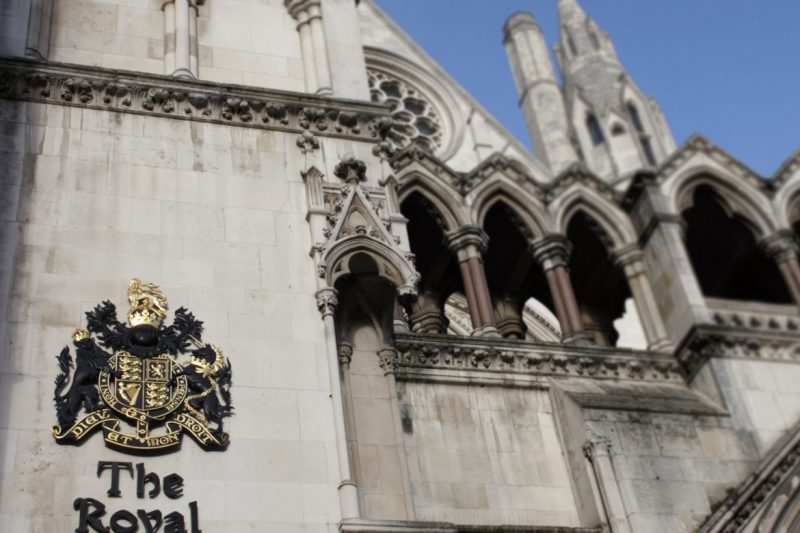The Conduct of Litigation in the Technology and Construction Court: Recent Guidance from the TCC
The Technology and Construction Court provides useful guidance in a recent case on the appropriate conduct of litigation, in particular in the Technology and Construction Court and the dangers of threatening adjudication proceedings and the cost consequences which may follow if parties pursue applications in the Technology and Construction Court that have no real impact on the issues that were central to the dispute: Gotch & Anor v Enelco Ltd [2015] EWHC 1802 (TCC).
The Claimant and the Defendant entered into an agreement for the construction of two residential properties known as “The Vinery” and “Woodwell”. The Claimants brought an application under Part 8 of the CPR for a declaration that the agreement between the parties did not entitle the Defendant to refer a dispute to adjudication. The Claimants’ application was made on the basis firstly that the provision for adjudication in the Articles in the agreement was deleted. Secondly, the Claimants submitted that they were residential occupiers within the meaning of section 106 of the Housing, Grants, Regeneration and Construction Act 1996.
The Court was troubled with the Claimants’ application for three reasons:
“…First, there appeared to be no imminent threat of adjudication proceedings, so if the dispute was resolved by litigation the declaration sought would probably serve no useful purpose. Second, it appeared that the Defendant did not intend to take part in the proceedings, so a declaration would be made on evidence and argument that was not being challenged. Third, there was a potential issue on the facts…”.
The Court having considered the matter very carefully and not being under any misapprehension about the nature of the claim or the application, refused to give the directions that the Claimants were seeking and considered that it was unnecessary and disproportionate to pursue a ground of relief for which at that time there was no immediate need. The Court then made an Order on 20 April 2015 which stated amongst other things that:
“…1. There be a case management conference on Friday, 15 May 2015 at 12 pm, in order to give directions for the future conduct of this action.
2. By 7 May 2015, the parties are to discuss and, if possible, agree, directions with a view to resolving:
i) whether or not the contract was terminated by the Defendant’s acceptance of a repudiatory breach of contract by the Claimant; and/or
ii) whether or not the Defendant is owed money under the contract, and, if so, how much;
iii) any other matters in dispute between the parties…”
Notwithstanding paragraph 2 the Court’s Order dated 20 April 2015, the Claimants’ response in the form of a letter to the Court dated 28 April 2015 stated amongst other things that:
“…We also note the direction in paragraph 2 of the Judge’s Order that the parties are to agree directions with a view to resolving the issues listed as 2 (i), (ii) and (iii). We apologise for the confusion that may have been caused by paragraph 4 of the Claim Form where these issues were identified as “Disputed Matters”. However, we wish to clarify that the only question, which the Claimants wish the court to decide in these Part 8 Proceedings is whether the building contract between the parties contained an express and/or implied right to refer any dispute arising to adjudication.
This is a matter of contractual interpretation, which is unlikely to involve a substantial dispute of fact.
The “Disputed Matters” were identified in the Claim Form, simply as background, to the Defendants threat to make a reference to adjudication, which the Defendant has refused to withdraw unequivocally. The Claimants wish to deal with the jurisdiction issue upfront so as to avoid the wasted costs that would otherwise be incurred in dealing with an adjudication and any enforcement proceedings, that had no jurisdictional basis.
Accordingly, whilst we shall endeavour to agree directions with the Defendant to deal with the Part 8 Claim (as clarified above), this will not cover the issues set out at paragraph 2 of the Judge’s Order. Those are not matters covered by the Part 8 Claim and in any event are not matters, which would be suitable for resolution under Part 8.”…” [Emphasis added]
The Court noted that the final paragraph of the Claimants’ letter dated 28 April 2015 was nothing less than a refusal to comply with the Court Order in circumstances where the Claimants did not take out an application to vary the Order, nor did they seek permission to appeal, they simply ignored it. In a further letter by the Claimants dated 28 May 2015 which was not received by the Court, it was explained on behalf of the Claimants that they thought the Court had misunderstood the position when it made the Order of 20 April 2015. The Court was a little surprised with the Claimants view in light of the reasons that were appended to the Court Order dated 20 April 2015 which explained why the Order had been made. The Court was also of the view that the letter provided no satisfactory explanation for the Claimants’ failure to discuss directions as required by the Order.
With regards to the Claimants conduct, the Court took the view that in spite of the clearest possible indication from the Court that a declaration in relation to the right to adjudication would serve no useful purpose, the Claimants persisted in seeking directions for the determination of that issue. Although the Defendant changed its position during the matter, the Court remained of the view that no useful purpose was to be served by the pursuit of the Claimants’ application for a declaration in relation to the right of adjudication under the contract. The Court took the view that both in the correspondence and at the hearing the Defendant had maintained the position that it had no current intention to refer any dispute to adjudication and so long as that remained the position and parties were engaging in some alternative means of dispute resolution, the question of whether or not the contract confers a right to adjudicate any dispute was academic and therefore the time and costs of resolving that question would therefore achieve nothing. In the circumstances, the Court considered that the Claimants’ application should be stayed as this seemed to be the most expedient and efficient method of resolving the real issues in dispute between the parties.
The Court provided very useful guidance on the approach to costs and how parties to litigation, in particular in the Technology and Construction Court at least are expected to conduct litigation. The Court stated amongst other things that:
“…The approach to costs
With their introduction in 1999 the CPR introduced radical changes in the approach to litigation in England and Wales. Recently, these changes have been substantially extended as a result of the Jackson reforms to introduce the additional requirement in the overriding objective to deal with cases “at proportionate cost”.
By CPR 1.3 the parties are required to help the court to further the overriding objective.
It is therefore time to say, in the clearest terms, that parties and their… can no longer conduct litigation in a manner which does not keep the proportionality of the costs being incurred at the forefront of their minds at all times.
It is no longer acceptable – if it ever was – for parties to pursue issues or applications that have no real impact on the issues that are central to the dispute. Further, it is no longer acceptable for solicitors to carry on a war of attrition by correspondence, whether instructed to do so or not: it is the parties who are the subject of the duty in CPR 1.3, not merely their solicitors.
Litigation in the TCC is primarily commercial. In a few cases, such as this one, the subject matter is, or is at least said to be, buildings intended for residential occupation. Nevertheless, these are substantial properties. So even in a case such as this, there will only rarely be any justification for fighting or taking points simply “as a matter of principle”.
Whilst English law is an adversarial process, that goes to the issues in the case: not to every aspect of the procedure. Parties to litigation, in the TCC at least, are expected to conduct that litigation in the manner that is most expeditious and economical. Bringing the right issues to trial in the most economical fashion, and taking steps to ensure that the costs are kept at a level that is proportionate to what is at stake, is to be at the heart of the process.
Unreasonableness, intransigence and the taking of every point must in my view now be regarded as unacceptable, because conducting litigation in that way flies in the face of the overriding objective as it is now formulated. These habits must disappear from the landscape of litigation in the TCC. If they do not, offending litigants must expect to bear the costs.
If access to justice is to have any real meaning, then the aim of keeping costs to the reasonable minimum must become paramount. Procedural squabbles must be banished and a culture of cooperative conduct introduced in their place. This will not prevent contentious issues from being tried fairly: on the contrary it should promote it…”
The Court having considered the conduct of the parties in light of the principles set out in the judgment and the further submissions received from the parties stated amongst other things that:
The Claimants were justified in preparing these proceedings, having regard to the position taken by the Defendant up to the end of March 2015 and in fact it was not until 9 April 2015 that the Claimants had been given any indication that the threat of adjudication might no longer be imminent. By this time the Claimants’ solicitors had prepared the three main witness statements that were to be relied on in the action. It was not until they received the letter of 13 April 2015 that those advising the Claimants should have appreciated that there was no current risk that the Defendant would make an imminent referral to adjudication. However, the Court further pointed out that by this time, the costs of preparing the proceedings had largely been incurred and as a consequence the Court considered that the Claimants were justified in issuing the proceedings when they did in spite of the last minute change of position by the Defendant.
The Defendant should have appreciated much sooner than it did that there was a serious issue in relation to the right to adjudicate under the agreement and that to insist on referring the dispute to adjudication was bound to provoke the Claimants into resisting it and therefore if the object of the exercise was to find a swift way of resolving the dispute, to proceed by way of adjudication in these circumstances was courting difficulty.
That the conduct of the Defendant in persisting with the threat of adjudication for as long as it did was unreasonable in the Court’s view and was in fact a negotiating tactic.
It was not appropriate for the Claimants to make an immediate application for directions without any reference to the Defendant, which is what they did. The appropriate course of action according to the Court was having issued the proceedings, the Claimants should have sought an undertaking from the Defendant that it would not refer the dispute to adjudication in the near future or, at least not without giving the Claimants sufficient notice to obtain an injunction to restrain the pursuit of any Referral to adjudication that the Defendant might make, which the Claimants did not do.
The Claimants’ approach of seeking an immediate Order for directions for the further conduct of the application was both inappropriate and premature, but having done that, and having obtained the Order of 20 April 2015, the Claimants should have complied with it rather than to write to the Court a week after the Order was made saying that they had no intention of complying with it because they thought the Judge had misunderstood the position, which was inexcusable.
If the Claimants were dissatisfied with the Order, or really believed that the Judge had misunderstood the nature of the application they were making, they could and should have made an application for the Order to be varied. Although the Order did not give the Claimants permission to apply to vary it (which was given to the Defendant since it had no opportunity to make any submissions about the directions sought), but that did not prevent the Claimants from making an application to do so if they believed that it had been made on the basis of a misunderstanding. It just meant that, in the absence of permission to apply, the Claimants would have to pay the relevant fee in Order to make the application to the Court.
The conduct of the Claimants in persisting in proposing directions that were not in accordance with the Court Order of 20 April 2015 was pursued right up to the hearing, the Court considered this was inexcusable conduct.
In summary, the parties in litigation, in particular in the Technology and Construction Court should note the following observations made by the Court in ensuring that disputes are resolved in the most cost effective manner:
Parties can no longer conduct litigation in a manner which does not keep the proportionality of the costs being incurred at the forefront of their minds at all times.
It is no longer acceptable – if it ever was – for parties to pursue issues or applications that have no real impact on the issues that are central to the dispute.
Litigation in the TCC is primarily commercial.
Whilst English law is an adversarial process, that goes to the issues in the case: not to every aspect of the procedure. Parties to litigation, in the TCC at least, are expected to conduct that litigation in the manner that is most expeditious and economical .
Unreasonableness, intransigence and the taking of every point must in the Court’s view now be regarded as unacceptable, because conducting litigation in that way flies in the face of the overriding objective as it is now formulated.
If access to justice is to have any real meaning, then the aim of keeping costs to the reasonable minimum must become paramount.
Procedural squabbles must be banished and a culture of cooperative conduct introduced in their place.
For further information, please do not hesitate to contact Charles Edwards in chambers on: charles.edwards@newtemplechambers.com to see how chambers can assist you or your organisation.
The above is for general information only and to encourage discussion and does not constitute legal advice. The author does not assume any responsibility for the accuracy of any statements made and appropriate legal advice should be taken and relied upon before taking or omitting to take any action in respect of any specific matter.
Charles Edwin Edwards MSt(Cantab) MSc(Lond) FCInstCES Barrister
NEW TEMPLE CHAMBERS
2nd Floor Berkeley Square House
Berkeley Square
Mayfair
London W1J 6BD
Tel: +44(0)207 887 6098





